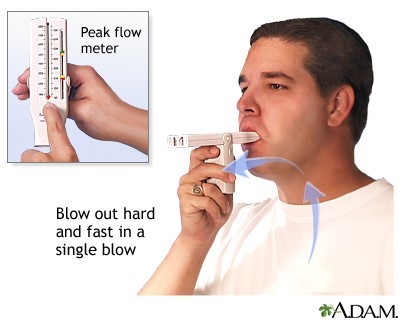A nurse is monitoring a client’s oxygen saturation using a pulse oximeter. The client’s oxygen saturation is 88% on 2 L/min of oxygen via nasal cannula.
Which of the following actions should the nurse take?
Reposition the sensor probe.
Apply a cooling blanket to the client.
Place the client in a side-lying position.
Ambulate the client.
The Correct Answer is A
The client’s oxygen saturation is 88% on 2 L/min of oxygen via nasal cannula, which is below the normal range of 95% to 100%.
This could indicate that the client is not receiving enough oxygen or that the pulse oximeter is not working properly.
The nurse should first check the sensor probe for any problems, such as poor attachment, nail polish, cold extremities, or motion artifact.
Repositioning the sensor probe may improve the accuracy of the reading and help the nurse determine the next course of action.
Choice B. Apply a cooling blanket to the client is wrong because a cooling blanket is used to lower the body temperature of a client with fever or hyperthermia.
It has no effect on the oxygen saturation level.
Choice C. Place the client in a side-lying position is wrong because a side-lying position may not improve the oxygenation of the client.
A more appropriate position would be a high Fowler’s position, which allows for maximum lung expansion and gas exchange.
Choice D. Ambulate the client is wrong because ambulating the client may worsen the oxygen saturation level if the client has a respiratory condition that causes hypoxemia.
The nurse should assess the client’s respiratory status and oxygen therapy before ambulating the client.
Nursing Test Bank
Naxlex Comprehensive Predictor Exams
Related Questions
Correct Answer is D
Explanation
The correct answer is choice D. A living will can specify which medical procedures a person wants or does not want to receive in certain situations, such as when they are terminally ill or permanently unconscious.
A living will is a type of advance directive, which is a legal document that provides instructions for medical care if a person is unable to make decisions for themselves.
Choice A is wrong because a person does not need to have advance directives in order to refuse recommended treatment.
They have the right to accept or decline any medical intervention at any time, as long as they are competent and able to communicate their wishes.
Choice B is wrong because a person does not need an attorney to name a designee in their health care proxy.
A health care proxy is another type of advance directive that appoints a person to make health care decisions for someone else if they are unable to do so.
A health care proxy can be completed without involving a lawyer, as long as it meets the state’s requirements for a valid document.
Choice C is wrong because a living will cannot be an oral statement that a person agrees upon with their provider.
A living will must be in writing and follow the state’s laws for creating legal documents.
Depending on the state, a living will may need to be signed by a witness or notarized.
Correct Answer is A
Explanation
This is because the nurse should first assess the client’s baseline knowledge and readiness to learn before providing any teaching.
The nurse should also tailor the teaching to the client’s individual needs and preferences.
Choice B is wrong because showing the client a video demonstration of peak flow meter use may not be the most effective way of teaching if the client has different learning styles or needs.
The nurse should also involve the client in the learning process and not just rely on passive methods.
Choice C is wrong because observing the client using the peak flow meter is an evaluation step that should be done after teaching and reinforcing the correct technique.
The nurse should not assume that the client knows how to use the peak flow meter without assessing their knowledge first.
Choice D is wrong because emphasizing the importance of the daily use of the peak flow meter is a motivational strategy that should be done after assessing the client’s knowledge and providing teaching.
The nurse should also explain the rationale and benefits of using the peak flow meter, not just tell the client to do it.
A peak flow meter is a small device that measures how fast a person can forcefully blow air out of their lungs in one fast breath.
It is one indicator of airways changes that may occur in people with asthma or COPD.
To get a peak flow meter, speak to a doctor.

Whether you are a student looking to ace your exams or a practicing nurse seeking to enhance your expertise , our nursing education contents will empower you with the confidence and competence to make a difference in the lives of patients and become a respected leader in the healthcare field.
Visit Naxlex, invest in your future and unlock endless possibilities with our unparalleled nursing education contents today
Report Wrong Answer on the Current Question
Do you disagree with the answer? If yes, what is your expected answer? Explain.
Kindly be descriptive with the issue you are facing.
